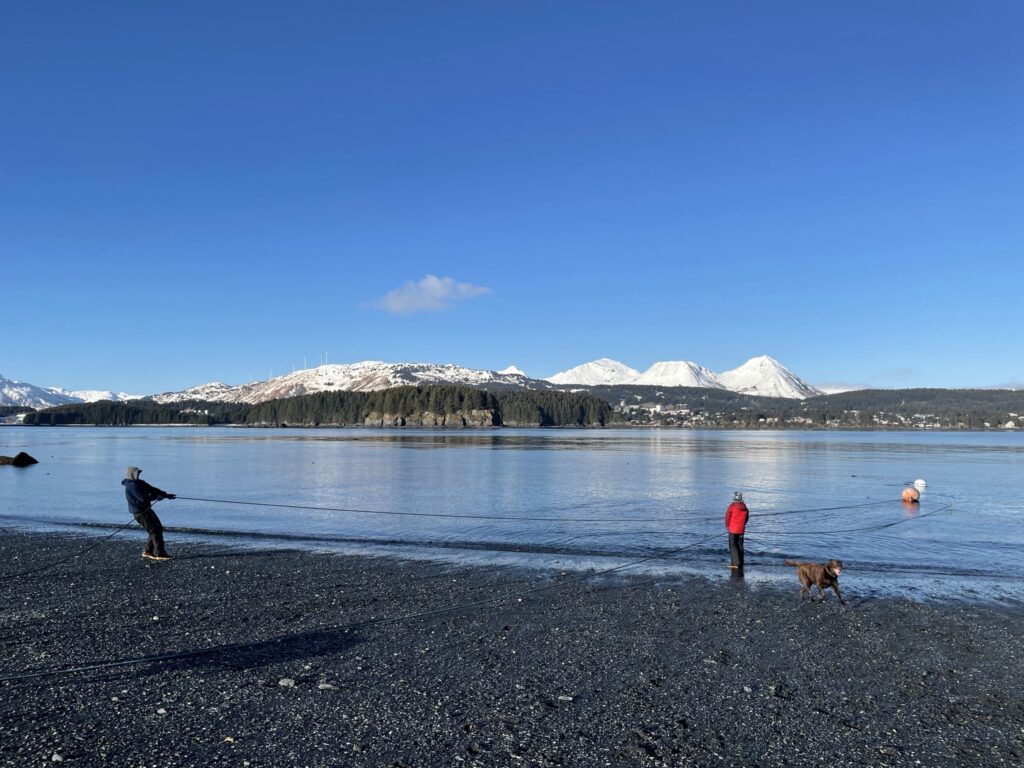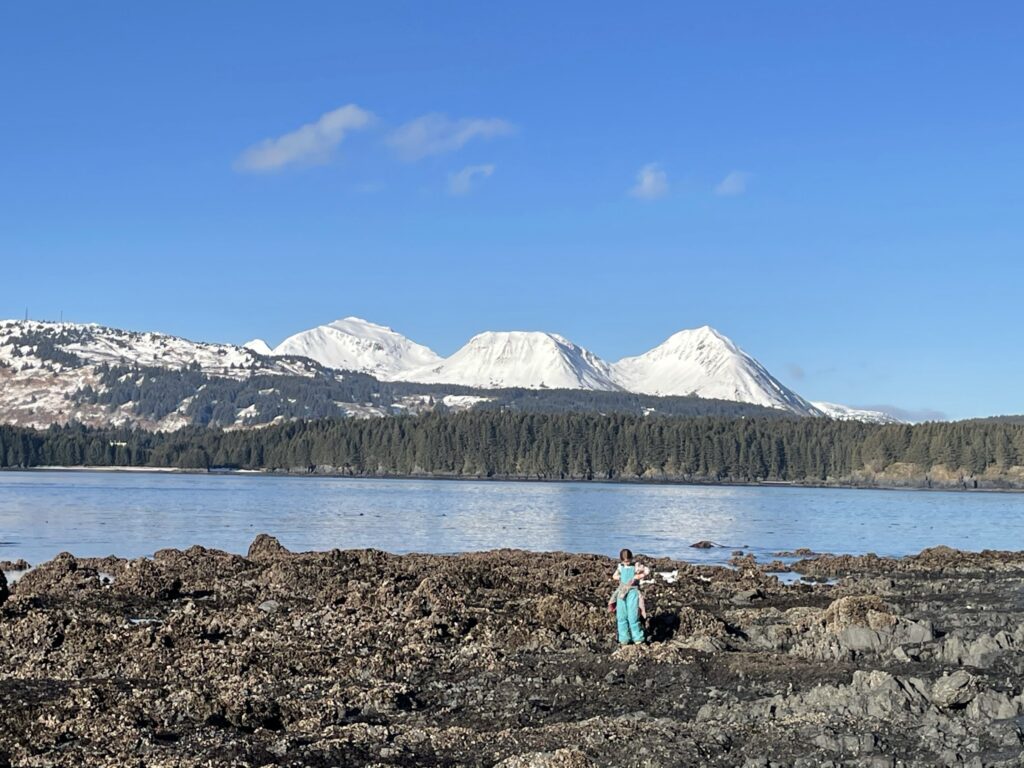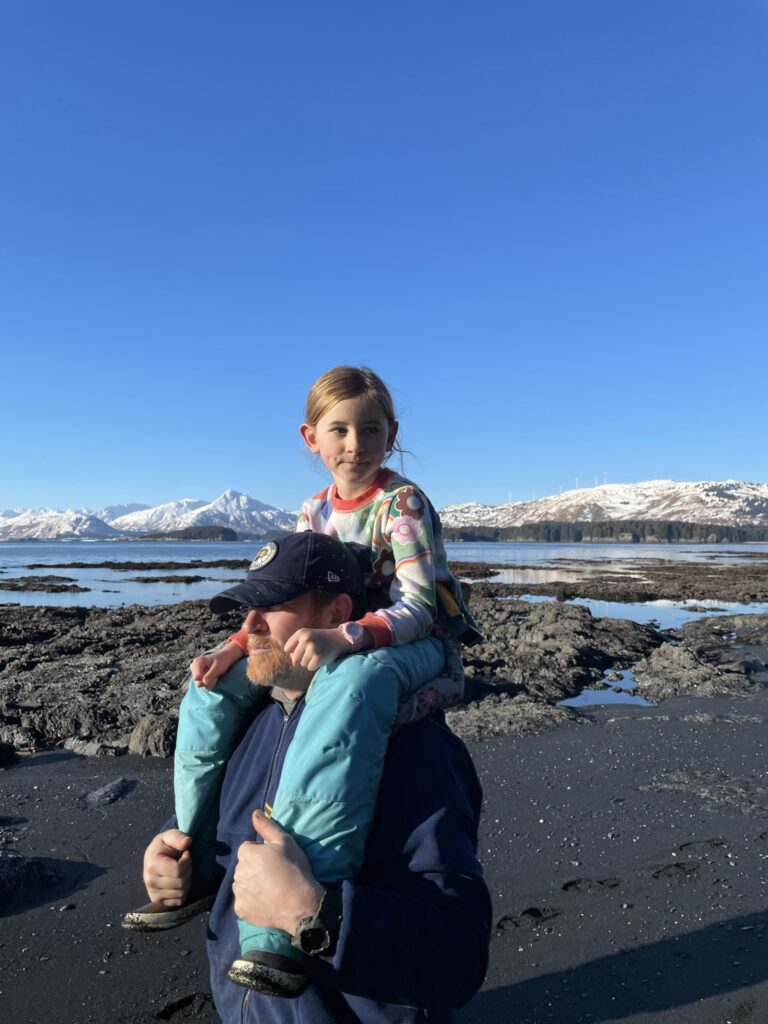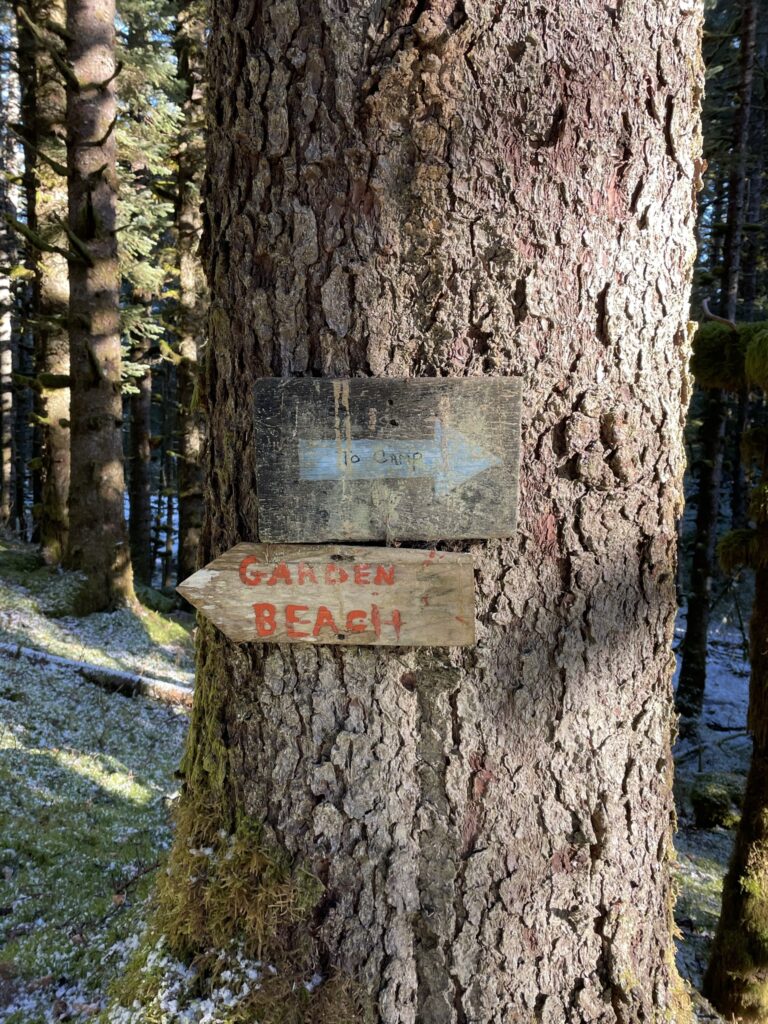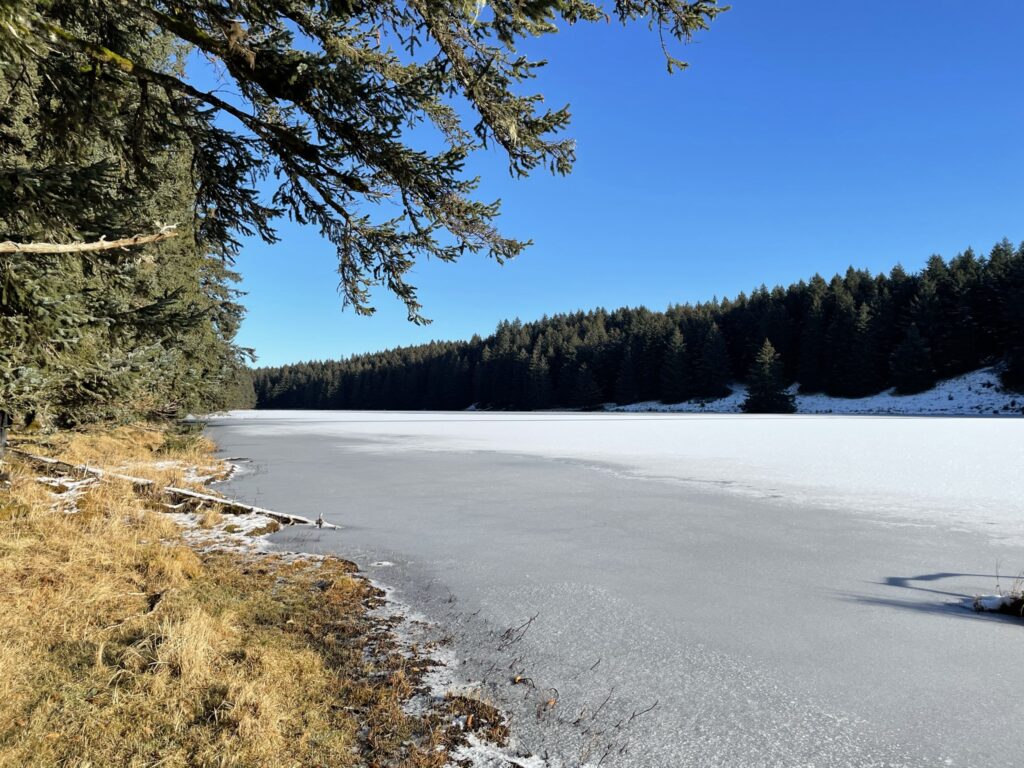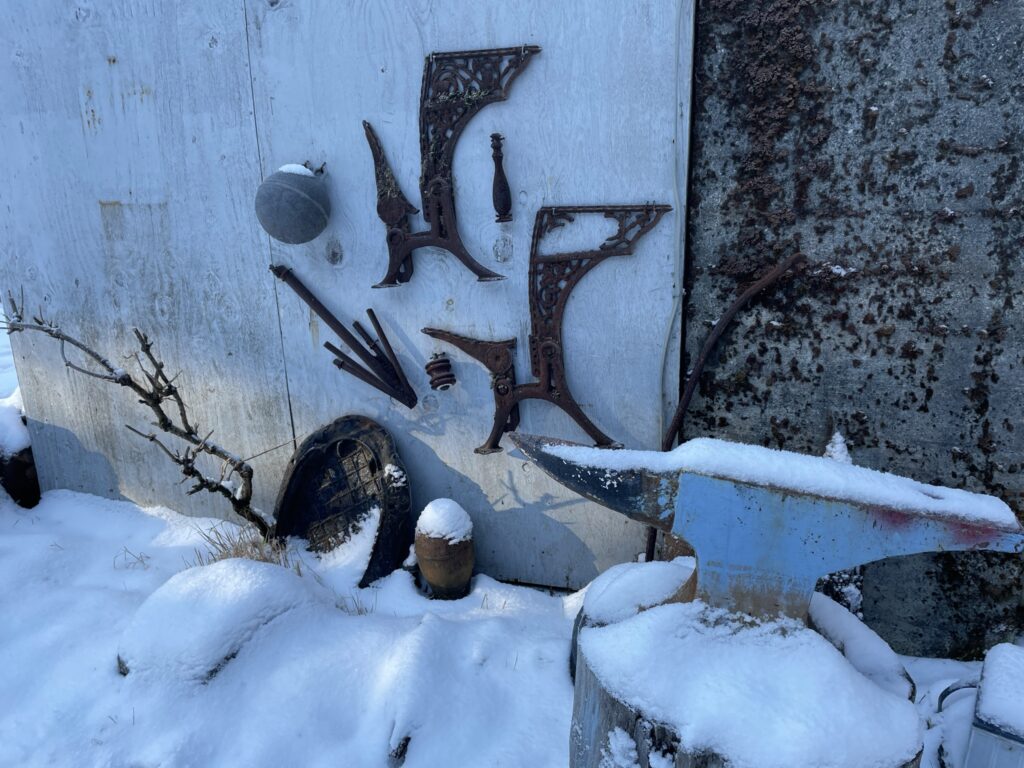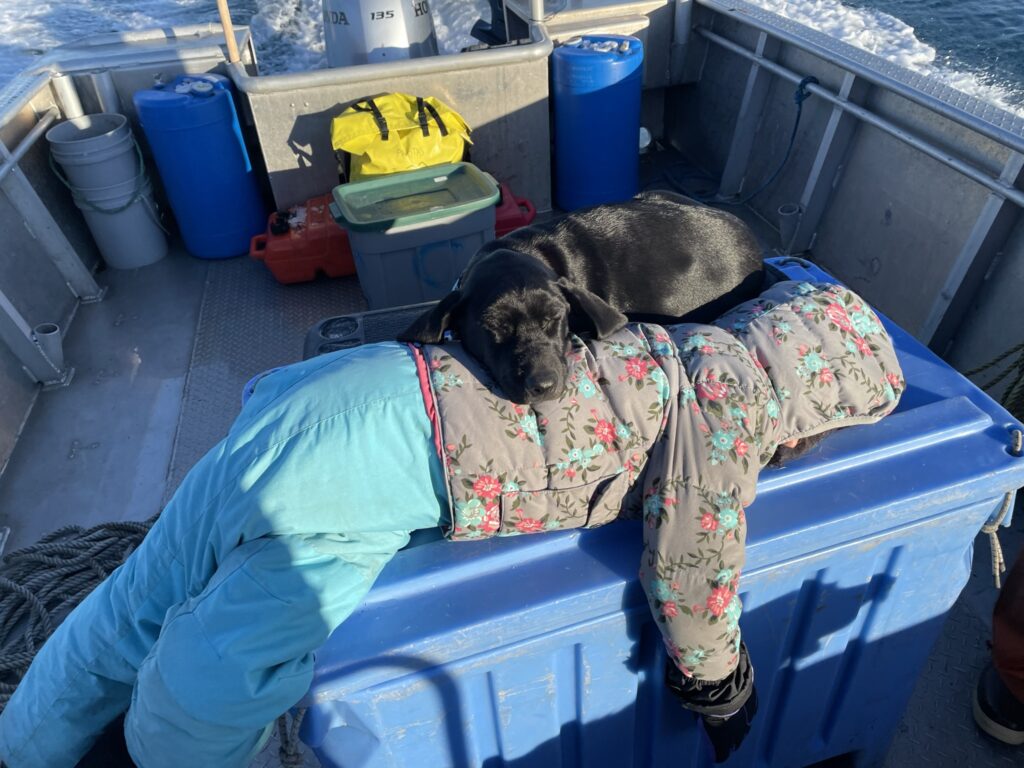The chickens peck at a frozen water bowl under branches sunk with snow as we shovel out the skiff. Our son is playing the piano instead of getting ready. Here comes the sun, I hum along as I fill the thermos, and I’m more patient because of it when he can’t find his jacket or his gloves. We aren’t going far, just across to an island that follows in the periphery along Kodiak’s main road, a green blur of spruce. Woody Island is close enough that people used to row dories back and forth. For a while there was even a daily ferry for school and Sunday service. History books mention the island for the first road in Alaska, and the first horses, which hauled great chunks of ice from the lake—stored in sawdust and shipped as far as South America. But long before and after that venture, people called this place home. They called the island Tangirnaq, and at times it was more populated than the city of Kodiak. So it’s all that we do not see here that is remarkable to me.
Time undoes without malice or intention. Gone are the villages of barabaras and log cabins, the wharf, the fur trading post, the sawmill and boat building yard, the barn and silo and stables, the dairy, post office, the blacksmith and carpentry shop, two churches, the orphanage, Longwood school. Fire destroyed the wireless station and its towers when they were struck by volcanic lightning in 1912. A whole FAA neighborhood burned down. The submarine sounding station is long gone, its anti-submarine nets having rusted away to lines on navigation charts. Snow hides the Russian graveyard. The mass grave of those who died in such numbers from the 1918 flu, there wasn’t time to build that many coffins. The children’s cemetery filled by things like whooping cough, which one year killed eight children and all the babies on the island. The grave of a young man killed two days before his tour in Vietnam was over, buried where he’d hoped to build a house after the war.
Left out of those history books are the losses that come with all that industry—epidemics, forced labor, acculturation. They neglect the stories of resilience and what it took to live here, to feed your family. People worked hard on this island. At the orphanage, children fished and chopped wood and tended gardens and cows and chickens. Today the mountains ring the view like outspread arms. Horses watch from a sun-gold field. Our kids in snow pants and mittens pull off their boots to run barefoot on sand the tide cleared of snow. If life is moments, then this one. This, the first day this year we could feel the sun’s warmth on our face.
